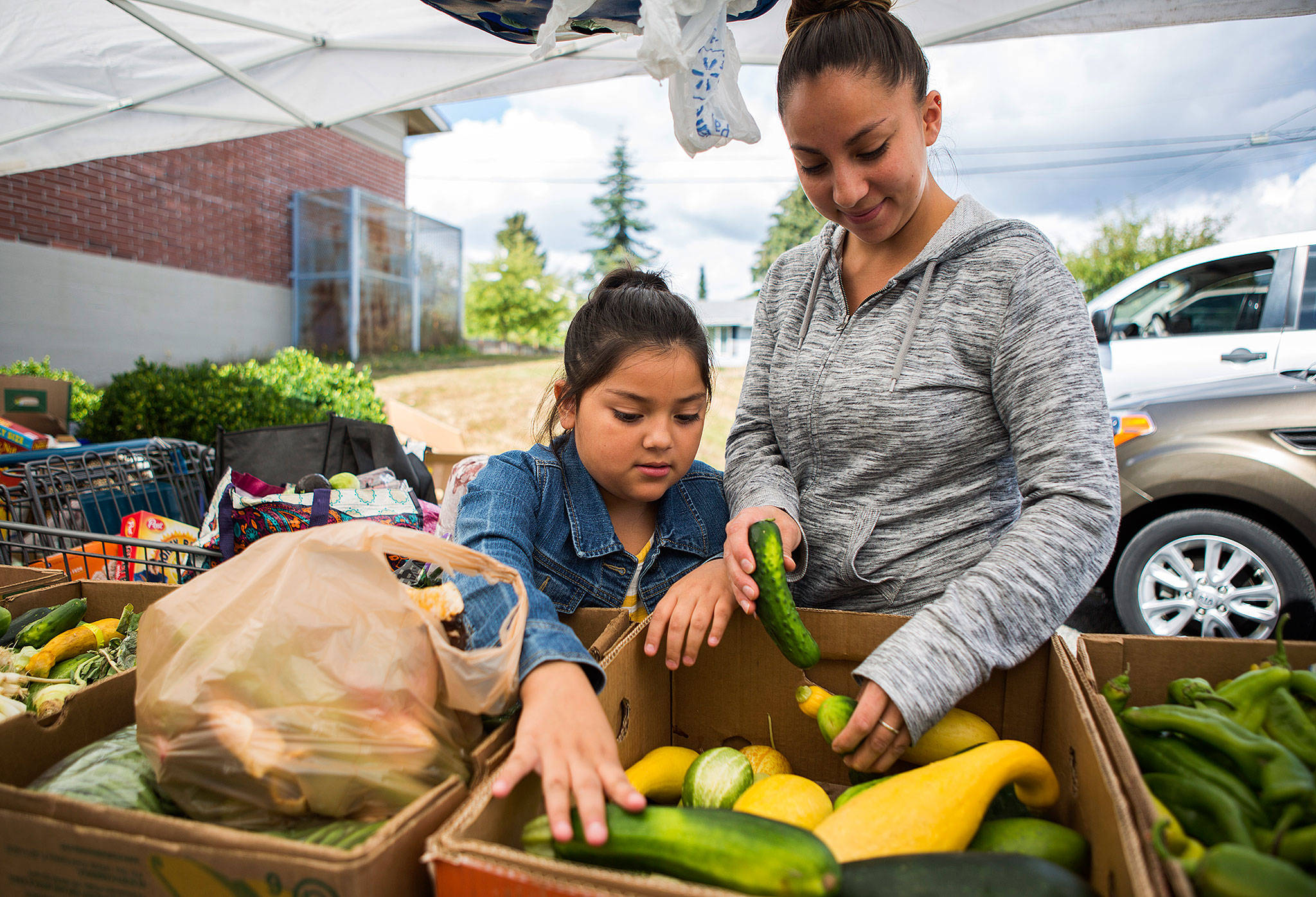By The Herald Editorial Board
Among the hipper food trends out there is the “pop-up” restaurant, where an up-and-coming chef opens a temporary restaurant in a vacant retail or industrial space.
Thanks to the record-long partial government shutdown, the pop-up concept has expanded to another food-providing service: the food bank.
Local volunteers have organized a food drive and temporary food bank location in Smokey Point to help support Coast Guard families, civilian workers and Coast Guard crews, including those based in Everett, who continue on their daily assignments but have today missed their second paycheck since the shutdown.
The pop-up is operating in vacant space adjacent to the Navy Exchange Store at the Smokey Point Naval Support Complex, 13904 45th Ave. NE in Marysville. Donations from the community at-large are being accepted from 8 a.m. to 7 p.m. seven days a week. Coast Guard families are invited to accept donated food from 11 a.m. to 2 p.m. daily.
It will continue in operation for the duration of the shutdown or longer, depending on when regular pay resumes.
Coast Guard families, of course, are not the only furloughed workers locally who have gone without pay during the shutdown, which is now in its 34th day. Nationwide, more than 800,000 federal workers, about a quarter of the government, are going without pay, and millions more government contractors also are facing uncertainty over the paychecks.
Adding to the uncertainty: It’s unclear how long the shutdown will continue, as President Trump sticks with his demand for $5.7 billion in funding for a physical border barrier; and Democrats in Congress maintain they won’t negotiate on border security until the shutdown is over.
With no end in sight, there are now additional concerns for how long some federal program benefits will be available, including the Supplemental Nutrition Assistance Program and the Women, Infants and Children nutrition program. Most recipients of SNAP — also known as food stamps — have already received their benefits for February. Although there has been no official notification, allocations for March could depend on how quickly the shutdown is resolved.
Nationwide, some 42 million Americans — and 929,000 Washington state residents — depend on food stamps, including 68 percent who are in families with children, 33 percent who are in families with those who are elderly or disabled and 44 percent who have jobs but still require SNAP assistance.
Food banks in the county are reporting an increase in visits and are hearing that some new visitors are either government employees or contractors.
“We do hear from some,” said Ann Anderson with the Lake Stevens Food Bank. “I don’t drill people (for information) but I do like to ask if they’re new so we can offer help in finding other services.”
For many, this is a new experience using a service they haven’t had to turn to before.
“Federal workers will tell us, ‘I was never supposed to be here,’ and that ‘I donated here,’” Anderson said. But in almost all cases, those who use the food bank never planned on losing jobs or leaving a job because of illness, she said; the shutdown is no different in that regard.
No one should hesitate to use these services when they’re needed, Anderson said:
“We’re a judgment-free zone.”
The uncertainty over SNAP benefits also may be increasing visits, said Dell Deierling, director of the Marysville Community Food Bank.
Because February benefits were distributed earlier this month, rather than in the month’s first ten days as is typical, Deierling said he’s concerned some recipients may not understand they’ll have to budget what they’ve received to last through February and possibly longer, depending on how long it takes to resume disbursements after the shutdown ends.
The increased demand also comes at a time of year when donations to food banks aren’t at their strongest, as they are during the winter holidays.
“We encourage everybody to support the food bank in the community in which they live,” Deierling said.
Check the food bank’s website or call to learn what particular items they are most in need of. Cash donations allow more flexibility.
Food banks, Deierling said, operate on the premise that people should be encouraged to use the service when they are in need and be generous when they are in a position to help out.
“It’s how we take care of each other and build our society,” he said. “If the folks at higher levels aren’t able to take care of us, then we’ll take care of each other and offer a demonstration of how they should function.”
Talk to us
> Give us your news tips.
> Send us a letter to the editor.
> More Herald contact information.

























